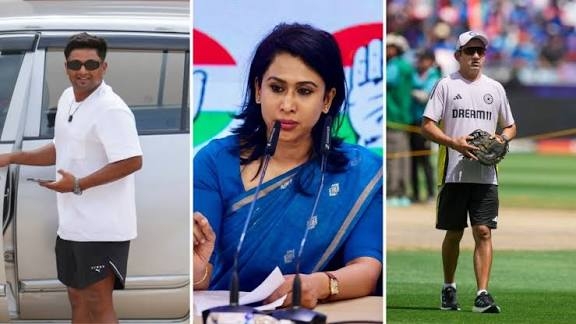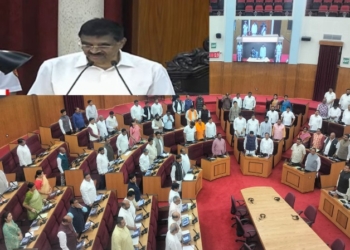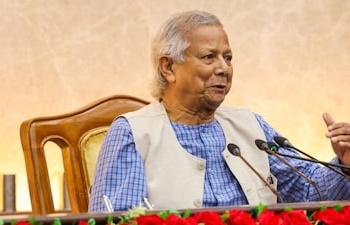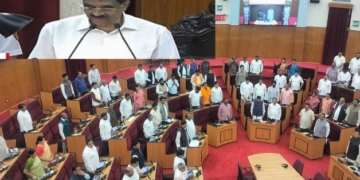Congress national spokesperson Shama Mohamed sparked controversy on Wednesday after questioning the non-selection of cricketer Sarfaraz Khan for India’s recent assignments. Her comments on social media drew sharp criticism from political leaders and cricket fans alike.
Shama Mohamed’s Post on X Triggers Outrage
Taking to X (formerly Twitter), Mohamed wrote:
“Is Sarfaraz Khan not selected because of his surname! #justasking. We know where Gautam Gambhir stands on that matter.”
Her post appeared to target India coach and former BJP MP Gautam Gambhir, suggesting religious bias behind selection decisions.
The comment came after Sarfaraz Khan was left out of the India A squad for the upcoming series against South Africa A in Bengaluru.
Criticism from Political and Cricket Circles
Mohamed’s remarks were widely condemned. BJP spokesperson Shehzad Poonawalla accused her of attempting to “communalise cricket,” saying:
“After calling Rohit Sharma fat, she and her party now want to divide our cricket team on communal lines? In the same team, Mohammad Siraj and Khaleel Ahmed play! Stop dividing India on communal and caste lines.”
Mohsin Raza, former Uttar Pradesh minister, echoed similar views, urging politicians not to “politicise sports.”
Sarfaraz Khan’s Case: What We Know
Reports suggest that Sarfaraz’s omission is based on injury concerns and team balance, not religion. Chief Selector Ajit Agarkar had earlier clarified that Sarfaraz missed the West Indies series due to a quadriceps injury and needed to regain fitness before returning to the squad.
Despite his impressive domestic record — averaging over 65 in first-class cricket and scoring 371 runs in six Tests — Sarfaraz has been overlooked for recent tours.
Selectors are currently testing Rajat Patidar, B Sai Sudharsan, and Ruturaj Gaikwad for middle-order roles.
Political Angle Deepens Debate
Mohamed’s post follows similar comments by AIMIM chief Asaduddin Owaisi and party spokesperson Waris Pathan, who also questioned Sarfaraz’s exclusion. However, many observers argue that performance and team strategy — not religion — drive selection decisions.





























